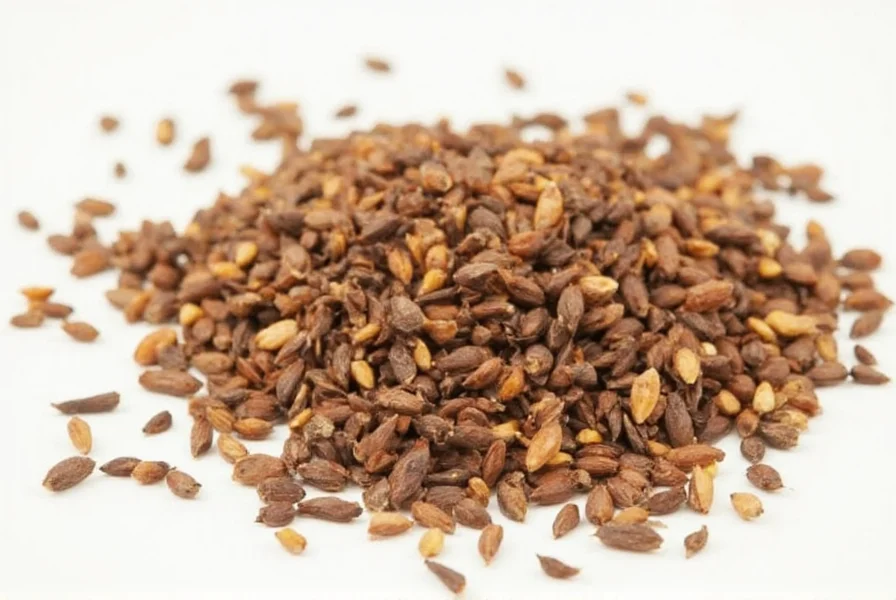For centuries, cloves have been used in traditional medicine across Asia and the Middle East as a natural remedy for various ailments. These small, aromatic flower buds from the Syzygium aromaticum tree contain powerful compounds that provide genuine health benefits when chewed properly. While modern dentistry has advanced significantly, the therapeutic properties of cloves remain relevant in contemporary health practices.
Scientifically Supported Benefits of Chewing Cloves
Dental Pain Relief
One of the most well-documented benefits of chewing cloves is their ability to provide temporary relief from toothaches. The eugenol content in cloves (comprising 70-90% of clove essential oil) acts as a natural analgesic and antiseptic. When you chew a clove and place it near the affected tooth, the eugenol numbs the area and reduces pain signals. A 2018 study published in the Journal of Dentistry found that clove oil provided comparable short-term pain relief to benzocaine, a common topical anesthetic used in dentistry.
| Benefit | Scientific Evidence Level | Recommended Usage |
|---|---|---|
| Toothache relief | Strong clinical evidence | 1 clove placed near affected tooth for 15-30 minutes |
| Antibacterial properties | Moderate laboratory evidence | Chew 1 clove after meals for oral hygiene |
| Antioxidant effects | Preliminary research | Regular moderate consumption |
| Digestive aid | Traditional use, limited clinical evidence | Chew after heavy meals |
Natural Antibacterial Properties for Oral Health
Chewing cloves releases compounds that combat harmful bacteria in the mouth. Research shows that eugenol effectively inhibits Streptococcus mutans, the primary bacteria responsible for tooth decay. Unlike commercial mouthwashes that can disrupt your mouth's natural microbiome, cloves provide targeted antibacterial action without eliminating beneficial bacteria. This makes them particularly valuable for maintaining balanced oral flora while addressing specific dental concerns.

Temporary Solution for Bad Breath
Halitosis, or chronic bad breath, affects approximately 25% of the global population. Chewing cloves provides immediate freshening effects due to their strong aromatic properties and antibacterial action. Unlike mint-based products that merely mask odors, cloves address the bacterial causes of bad breath. For best results when using cloves for bad breath relief, chew one clove slowly for 5-10 minutes after meals or when experiencing oral odor issues.
Traditional Uses vs. Scientific Evidence
What's Proven vs. What's Anecdotal
While traditional medicine attributes numerous benefits to cloves, scientific research supports only specific applications. Evidence-based benefits of chewing cloves include:
- Short-term dental pain management
- Reduction of oral bacteria that cause plaque
- Temporary freshening of breath
- Moderate anti-inflammatory effects in the oral cavity
Claims about cloves curing serious conditions like cancer or diabetes lack scientific support. Similarly, while cloves have been used traditionally for digestive issues, the evidence for chewing cloves specifically aiding digestion is limited compared to other consumption methods like clove tea.
Proper Technique for Chewing Cloves
Maximizing Benefits While Minimizing Risks
To safely enjoy the benefits of chewing cloves, follow these evidence-based recommendations:
- Use only 1-2 whole cloves per session
- Chew slowly to release active compounds gradually
- Hold the chewed clove near affected areas for targeted relief
- Limit sessions to 15-30 minutes to prevent tissue irritation
- Rinse your mouth with water afterward to remove residual oils
- Restrict usage to 1-2 times daily for temporary issues
For those seeking natural remedies for toothaches at home, chewing cloves represents one of the most scientifically supported options. However, it's crucial to understand that this provides only temporary relief and doesn't address the underlying cause of dental problems.

Potential Side Effects and Safety Considerations
When Cloves Might Cause Harm
Despite their benefits, chewing cloves isn't appropriate for everyone. Potential risks include:
- Dental enamel erosion: The acidic nature of cloves may damage tooth enamel with prolonged contact
- Bleeding risk: Eugenol has blood-thinning properties that may interact with anticoagulant medications
- Allergic reactions: Some individuals experience oral irritation or allergic responses
- Gum tissue damage: Excessive or prolonged application can cause chemical burns on delicate oral tissues
- Not for children: Cloves are not recommended for children under 12 due to choking hazards and sensitivity
Individuals with bleeding disorders or those scheduled for dental surgery should avoid chewing cloves at least one week before procedures. Pregnant women should consult their healthcare provider before using cloves medicinally, as high doses may affect hormone levels.
Complementary Natural Oral Care Practices
For those interested in natural dental care, chewing cloves works best as part of a comprehensive oral hygiene routine. Consider combining clove use with other evidence-supported practices:
- Oil pulling with coconut oil to reduce bacteria
- Using baking soda as a natural toothpaste alternative
- Drinking green tea for additional antioxidant benefits
- Maintaining regular brushing and flossing habits
Remember that natural remedies like chewing cloves should complement—not replace—regular dental checkups and professional care. When experiencing persistent dental pain or oral health issues, consult a dental professional to address underlying problems.
Conclusion: Balanced Approach to Natural Remedies
Chewing cloves offers genuine, scientifically supported benefits for temporary dental pain relief and oral health maintenance. The natural analgesic and antibacterial properties make them valuable for short-term use in specific situations. However, these benefits must be weighed against potential risks, and cloves should never replace professional dental care for serious conditions.
When used appropriately—moderately and with awareness of limitations—chewing cloves can be a valuable addition to your natural health toolkit. Understanding both the evidence-based benefits of chewing cloves for toothache and the realistic limitations helps you make informed decisions about incorporating this traditional remedy into your wellness routine.











 浙公网安备
33010002000092号
浙公网安备
33010002000092号 浙B2-20120091-4
浙B2-20120091-4